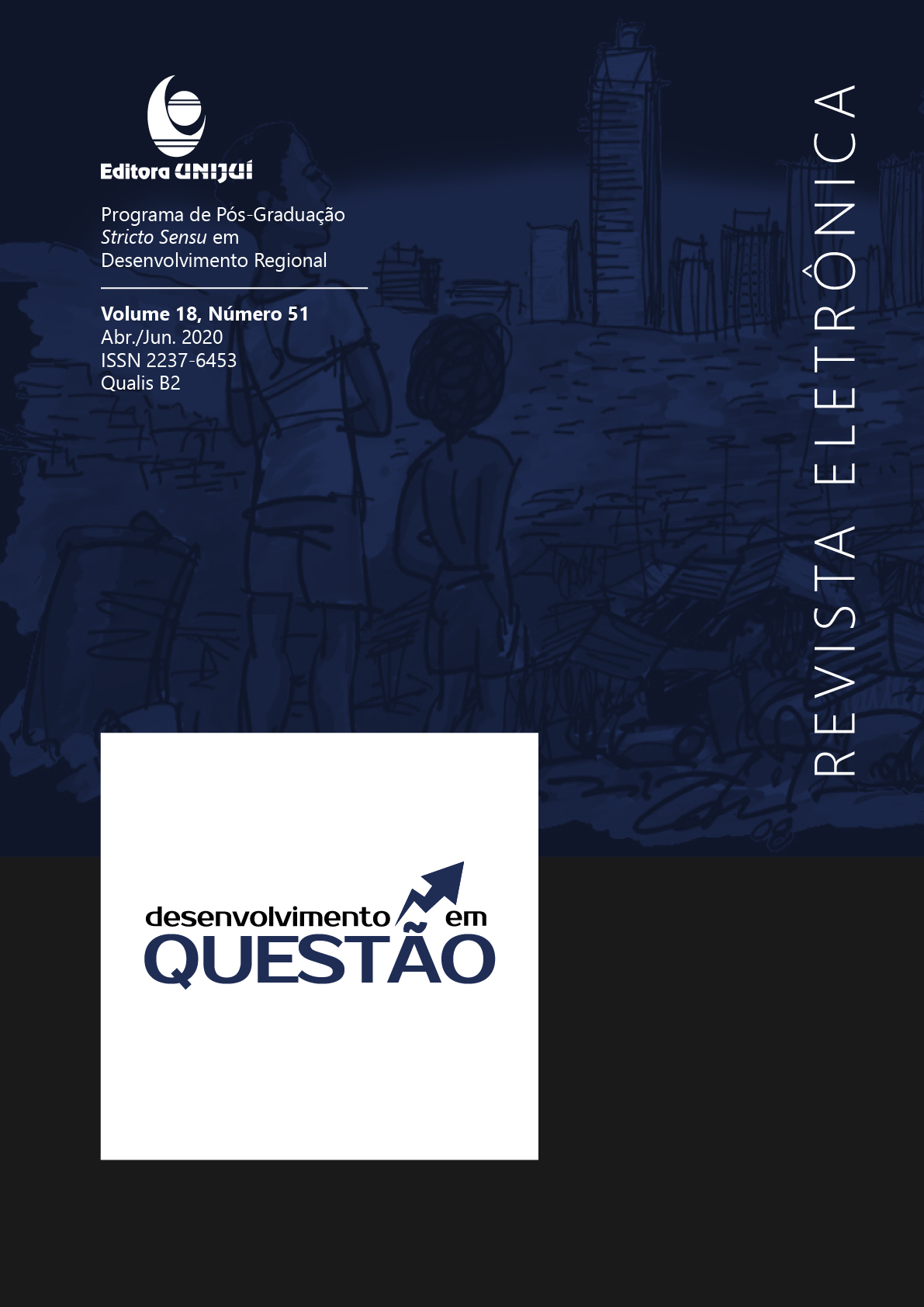Analysis of supply and demand trends for grain, bran and soybean oil in Brazil and in the main global markets
DOI:
https://doi.org/10.21527/2237-6453.2020.51.93-112Keywords:
Trend analysis. Exports. Soybean Complex.Abstract
What are the trends and possible supply and demand scenarios for soybeans and their derivatives in the coming years? The importance of the answer to this questioning lies in the fact that the commodity in question is the main item on the Brazilian export agenda and contributes economically to all regions of Brazil. The research presents analyze of trends in production, export, consumption and imports of grain, soybean meal and soybean oil in Brazil and its main global players. Trends and growth rates were identified and measured through the econometric model of trends and growth rates. Data were obtained from the US Department of Agriculture (USDA, 2018) and the Brazilian Vegetable Oils Industries Association (ABIOVE, 2019). Among the main results, the growth of supply, on the side of Brazil, the United States, Argentina and Paraguay, and the demand, mainly Asian, American and European, stand out. Therefore, the trend is to increase the production of the main Brazilian competitors and increase the demand of the main consumers, notably China, India, Russia, Algeria and other emerging economies. In view of this, it is strategic for the Brazilian soybean producer to strengthen trade relations with China, Russia and other complementary economies to the Brazilian economy. It was also observed that the Brazilian domestic market should be recognized, since it accounts for about 35% of soybeans, 50% of soybean meal and 84% of soybean oil.
Downloads
Published
How to Cite
Issue
Section
License
By publishing in Revista Desenvolvimento em Questão, authors agree to the following terms:
All works are published under the Creative Commons Attribution 4.0 International License (CC BY 4.0), which allows:
Sharing — to copy and redistribute the material in any medium or format;
Adaptation — to remix, transform, and build upon the material for any purpose, even commercially.
These permissions are irrevocable, provided that the following terms are respected:
Attribution — authors must be properly credited, a link to the license must be provided, and any changes made must be indicated.
No additional restrictions — no legal or technological measures may be applied that legally restrict others from doing anything the license permits.
Notices:
The license does not apply to elements that are in the public domain or covered by legal exceptions.
The license does not grant all necessary rights for specific uses (e.g., image rights, privacy, or moral rights).
The journal is not responsible for the opinions expressed in the articles, which are the sole responsibility of the authors. The Editor, with the support of the Editorial Board, reserves the right to suggest or request modifications when necessary.
Only original scientific articles presenting research results of interest that have not been previously published or simultaneously submitted to another journal with the same purpose will be accepted.
Mentions of trademarks or specific products are intended solely for identification purposes and do not imply any promotional relationship by the authors or the journal.
License Agreement (for articles published from 2025 onward): Authors retain the copyright to their article and grant Revista Desenvolvimento em Questão the right of first publication.











